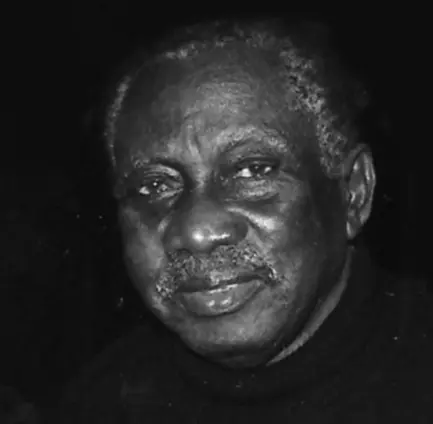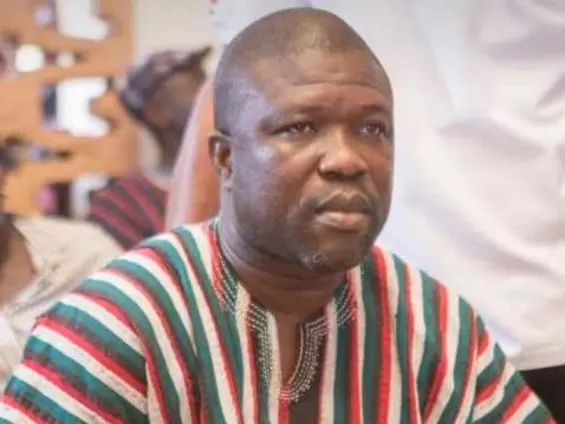The courtroom in Accra was hushed as details emerged in the case against Adina-Akapo Abdou Moudjibou, a Togolese businessman recently extradited to Ghana. Accused of orchestrating a series of brazen robberies, Moudjibou’s journey through the Ghanaian legal system has taken an unexpected turn: a court order for a mental evaluation. The evaluation was prompted by what authorities describe as increasingly erratic behavior from the suspect after his arrest, casting a shadow of uncertainty over the proceedings and raising questions about his fitness to stand trial for the serious charges leveled against him. At the heart of the matter is a robbery case involving significant sums of money and a daring break-in, a case that has now been complicated by concerns over the mental state of the alleged mastermind. This legal drama, involving international collaboration and now a crucial mental health assessment, continues to unfold, holding the attention of both legal observers and the public. The alleged robberies orchestrated by the Togolese businessman, Adina-Akapo Abdou Moudjibou, form the basis for the current proceedings.
Moudjibou faces charges of robbery, a grave accusation that carries significant penalties under Ghanaian law. However, his plea has been reserved, a procedural pause pending the outcome of the mandated mental evaluation. This decision underscores the court’s commitment to ensuring that Moudjibou is capable of understanding the charges against him and participating meaningfully in his defense. Central to the prosecution’s case is Marzouk Alidu, identified as Moudjibou’s alleged accomplice. Alidu, a motor rider, is charged with abetment of crime, accused of assisting Moudjibou in the commission of the alleged robberies. While Alidu was granted bail, he has yet to meet the stipulated conditions, remaining in custody as the legal process continues. The relationship between Moudjibou and Alidu, and the extent of their alleged collaboration, are key elements the court will need to consider.
The decision to order a mental evaluation for Moudjibou stemmed from a marked change in his behavior following his arrest and the recording of his caution statement. According to ASP Richard Amoah, the prosecutor in the case, Moudjibou began exhibiting unusual actions that raised concerns about his mental state. This behavior reportedly escalated, culminating in disturbing acts, including allegedly defecating and consuming his own waste. Such actions prompted the prosecution to formally request a psychiatric evaluation, seeking professional assessment of Moudjibou’s mental condition. The prosecution also used the opportunity to request an amendment to the charge sheet, aiming to accurately reflect Moudjibou’s extradition from Togo, clarifying that he was not, as previously indicated, still at large. Presiding over the proceedings, Judge Basilia Adjei Tawiah acknowledged the gravity of the situation and, in response to the prosecution’s requests, deferred taking pleas from either Moudjibou or Alidu. Moudjibou was remanded into the custody of the National Intelligence Bureau, while Alidu’s bail was maintained, contingent upon fulfilling the imposed conditions.
The complainant in the case is Dr. Jemimah Asare Morjah, a medical doctor at Accra Regional Hospital, residing in the East Legon neighborhood. Dr. Morjah alleges that on April 13, 2024, around 03:00 hours, Alidu gained unauthorized entry into her bedroom through the washroom window. According to her account, Alidu was masked and armed, demanding valuables under threat. The items allegedly stolen during the incident include a substantial sum of $200,000 in cash, a gold waist chain valued at GH₵20,000, a gold necklace worth GH₵18,000, assorted jewelry amounting to GH₵5,000, and a registered CZ 75.5P pistol belonging to her husband, Agbenyo Clement Edem. The scale and nature of the alleged robbery underscore the seriousness of the charges against Moudjibou and Alidu. Police investigations suggest that Moudjibou played a key role in the robbery, allegedly transporting Alidu to the complainant’s residence on a motorbike. This connection forms a crucial part of the prosecution’s case, linking Moudjibou directly to the scene of the crime. Further bolstering the prosecution’s case is Alidu’s alleged confession, in which he admitted to transporting Moudjibou to Dr. Morjah’s house for the purpose of the robbery and later picking him up. Alidu reportedly provided police with Moudjibou’s contact details, further implicating him in the alleged crime.
Following the issuance of an arrest warrant and the involvement of Interpol, Moudjibou was eventually apprehended in Lomé, Togo. On January 30, 2025, Interpol Togo notified the Ghana Police Service of Moudjibou’s arrest, paving the way for his extradition to Ghana on May 14, 2025, to face prosecution. However, during an identification parade held at the CID Headquarters, Alidu reportedly failed to identify Moudjibou as his accomplice, a potentially significant development in the case. Despite this, Moudjibou allegedly admitted in his caution statement to involvement in multiple robberies, claiming he was aided by a motor rider and another individual, Mohammed Djando, who remains at large. These conflicting accounts and pieces of evidence contribute to the complexity of the case, requiring careful consideration by the court.
The unfolding case against Adina-Akapo Abdou Moudjibou presents a complex web of legal and mental health considerations. The ordered mental evaluation adds a layer of uncertainty, its outcome poised to significantly influence the trajectory of the legal proceedings. As the court grapples with accusations of a meticulously planned robbery and addresses growing concerns surrounding Moudjibou’s mental well-being, the case remains fluid and subject to change. The next hearing, scheduled for June 3, 2025, promises further developments as the legal process continues. The collaboration between Ghanaian and Togolese authorities in this case highlights the critical role of international cooperation in addressing and combating cross-border criminal activities.
Image Source: MYJOYONLINE






















